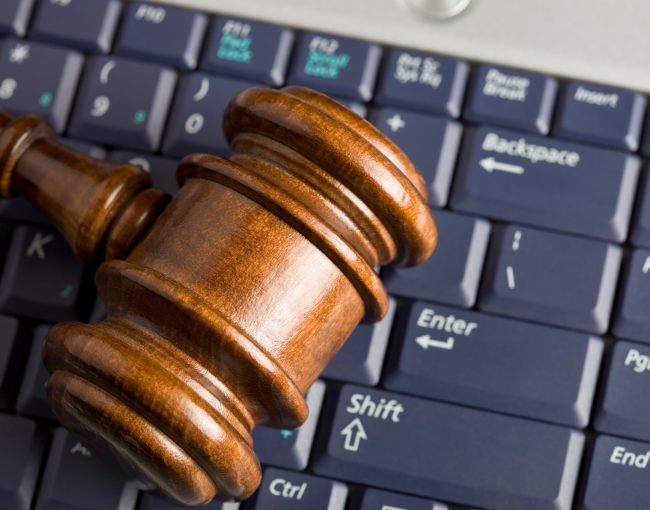Remote Depositions Durham Know-how: Pioneering Virtual Legal Procedures
Remote Depositions Made Easy: Important Tips for Legal Professionals
In the swiftly developing landscape of lawful proceedings, remote depositions have actually come to be a critical element of legal method. As lawful specialists browse this shift towards virtual interactions, guaranteeing a effective and smooth remote deposition process is critical.
Selecting the Right Technology
Picking the proper technology is a critical choice for attorneys planning for remote depositions. With the shift in the direction of online proceedings, having the right devices in position can considerably influence the success of these sessions. When choosing technology for remote depositions, it is vital to focus on trustworthy and safe systems that provide features tailored to the legal industry's demands. Video conferencing software, such as Zoom or Microsoft Teams, is generally made use of for remote depositions due to its capacity to facilitate real-time interaction and record sharing. Additionally, platforms that offer security and password protection can guarantee the confidentiality of sensitive information talked about during depositions. It is likewise essential to test the chosen modern technology ahead of time to attend to any prospective technological issues that might occur during the deposition. By meticulously assessing and picking the suitable technology, lawyers can perform remote depositions successfully and effectively, keeping the very same degree of professionalism and accuracy as in-person proceedings.
Preparing Your Client
Reliable interaction with your customer is paramount when getting ready for remote depositions. Guaranteeing that your customer recognizes the procedure, their role, and the relevance of sincerity and clarity throughout the deposition is crucial for an effective result. Begin by describing the modern technology that will certainly be used, such as video clip conferencing platforms, and offer clear guidelines on exactly how to sign up with the remote deposition.
Motivate your customer to dress properly and choose an appropriate place for the deposition, complimentary from distractions or interruptions. Stress the relevance of being on time and prepared with any type of necessary records or info that might be needed throughout the deposition. Review prospective questions that may develop and practice active listening and succinct feedbacks to help your client feel even more certain and prepared.
In addition, remind your customer of the discretion of the deposition and the significance of not discussing the situation with anyone during or after the session. Remote Depositions Durham. By effectively preparing your client for a remote deposition, you can help them feel more comfortable and ensure a smoother and extra efficient lawful procedure
Conducting a Mock Deposition
Exactly how can attorneys effectively imitate a deposition circumstance to prepare their clients for the actual remote deposition process? Carrying out a mock deposition is a vital action in preparing clients for the remote deposition experience. During a simulated deposition, attorneys can recreate the ambience of a real deposition, allowing customers to acquaint themselves with the procedure, inquiries, and prospective obstacles they may encounter.
To carry out a successful mock deposition, lawful experts must completely review the situation with their customer in advance. This includes going over key realities, expected questions, and any locations of issue. During the simulated deposition, it's necessary to link imitate real-life problems as closely as feasible. This suggests using video conferencing innovation, exercising doubting techniques, and urging the customer to respond as they would certainly throughout the actual deposition.

Ensuring Safety And Security and Confidentiality

Additionally, lawful specialists must inform all participants on ideal methods for maintaining confidentiality throughout remote depositions. This consists of advising individuals to conduct depositions in a private, silent area without diversions and to prevent talking about sensitive details in public or using unsecured networks. By applying these security procedures and advertising privacy procedures, lawful specialists can perform remote depositions with confidence and promote the highest requirements of personal privacy and information security.
Handling Technical Issues
Addressing technical challenges is vital in guaranteeing the smooth and effective conduct of remote depositions for attorneys. To efficiently handle technical issues throughout remote depositions, attorneys should carry out comprehensive screening of their equipment and software well in development of the set up deposition. This includes monitoring net connectivity, sound and video clip quality, in addition to knowledge with the deposition system being made click for info use of.

Lawyers must also make sure that all celebrations entailed in the remote deposition are given with clear guidelines on just how to troubleshoot usual technical problems. By proactively preparing and addressing for technological concerns, legal specialists can reduce disruptions and make sure a successful remote deposition experience.
Conclusion
In final thought, attorneys have to carefully select appropriate modern technology, appropriately prepare clients, perform mock depositions, focus on protection and discretion, and be prepared to handle technical problems when carrying out remote depositions. These important steps are vital in making sure a successful and smooth remote deposition process. It is critical for attorneys to follow these standards to effectively navigate the challenges of remote depositions.
How can legal experts efficiently simulate a deposition situation to prepare their clients for the real remote deposition process? Conducting a simulated deposition is a crucial step in readying customers for the remote deposition experience. Remote Depositions Durham.To preserve the stability of the deposition procedure, lawful professionals have to prioritize rigid measures to protect the security and confidentiality of the info exchanged throughout remote depositions. To properly handle technological issues throughout remote depositions, legal experts ought to conduct detailed screening of their tools and software application well in breakthrough of the set up deposition.In verdict, legal professionals have to carefully choose proper modern technology, appropriately prepare customers, conduct mock depositions, prioritize protection and confidentiality, and be prepared to deal with technological problems when conducting remote depositions